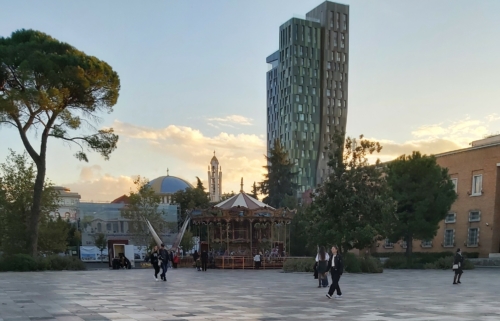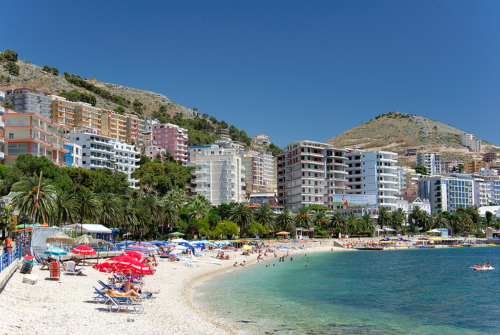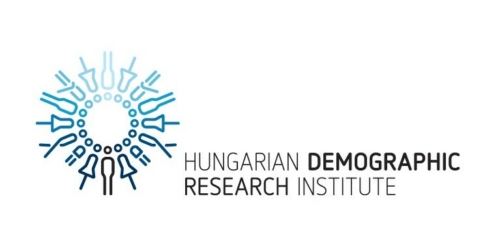Understanding Albania’s Newly-Found Demographic Anxiety
A renewed emigration wave and an extreme shift in birth rates is causing a lot of worry and debate in Albania.
On a typical sunny May day, a television reporter stood in front of the maternity ward of Elbasan, an industrial city in central Albania, giving the latest figures to the studio — number of births in the city is three times lower than a decade ago — she reported. On the same day, another reporter for a business magazine wrote about the rapid decline in school enrollment across Albania — a result of many young families leaving the country.
Birth numbers and emigration figures are featured daily and prominently in Albanian media as if they were currency exchange data or sport scores. The theme is the same: birth rates are hitting record lows and emigration rates are getting higher. The country is depopulating and aging rapidly. Its demographic future looks grim.
The media coverage highlights a general feeling in today’s Albanian society: Albanians are very anxious about the country’s demographic decline.
The anxiety is so acute, it is a top political concern. Polarized politics run so deep that something as benign as the total number of people in the country measured by the census, held in late 2023, has turned into a political battlefield — one of fake news, rumors and accusations. INSTAT, the body in charge of the census has not published even a preliminary figure yet, months after the census was conducted, leading to accusations that it is trying to lessen the shock of finding out how many people have left in the past decade.
Street scene in Tirana
Copyright: Andi Balla
Albanians’ high anxiety about their country’s demographics is a relatively recent phenomenon, even though the country has been in demographic decline since 1991. But Albania had a huge demographic dividend coming out of communism and a traditional society that continued to have some of Europe’s highest birth rates well into the 1990s. That dividend has now run out.
Albania is in the midst of what experts have dubbed “the third emigration wave” to differentiate it from the exodus of 1991 and another wave after the civil unrest of 1997. This wave does not make the news with photos of ships laden with people trying to reach Italians shores as they did in the 1990s, but the numbers are staggering nonetheless. Up to one in five people has left the country in the past decade, by some estimates.
And opinion surveys show that emigration will not ebb in the future. A recent study showed 13 percent of university- and working-age adults were making concrete plans to leave the country within a year; up to 70 percent said they would consider leaving if they were able to legally do so and if conditions were right.
The emigrants come from all strata of society. From doctors to plumbers — construction workers to engineers — many key areas of the economy and society are finding that people with needed skills are in short supply. Agriculture, for years the bedrock of the Albanian economy, now looks to South Asia, not the nearby empty village for workers.
Construction Workers in Durrës
Copyright: Anneli Salo, Durrës – Construction workers IMG 4409 Albanian College C, CC BY-SA 3.0
The change from the previous emigration waves is that the pull factor is stronger. Wealthier European countries facing demographic issues and labor shortages of their own have turned to creating a larger opening in their labor markets for Albania and the rest of the Western Balkans — an area that is geographically and culturally surrounded by the European Union, but which has been left out of the bloc, making it poorer and less developed.
In addition to the emigration factor, the Albanians left behind are not having children, in drastic contrast to earlier generations. Albania was once in the record books in the 1960s for having Europe’s and, indeed, one of the world’s highest birth rates at seven children per woman. Post-pandemic data indicate that the number in Albania is now as low as 1.21, competing with Italy and Spain for Europe’s lowest fertility rate.
Albanian officials often complain about wealthier countries attracting away Albanian skilled migrants — the pull factor — but have little patience for discussing the push factors — namely a governance that has failed to produce prosperity for the majority of the country’s residents.
Opinion polls show that while low wages are a top factor in the desire to emigrate, bad governance is also seen as a key factor — with corruption and lack of proper social services in health care and education being key concerns. Many Albanians also say in surveys they are choosing to leave the country because they simply don’t have hope that things can improve fast enough.
The business community is particularly unhappy with the situation. Emigration is producing acute labor shortages and is sapping the country of valuable consumers. A walk around Tirana shows that almost every other business has signs on the door looking for workers.
Faced with an unprecedented international tourism boom in the past couple of years, some businesses have decided to go the market way and throw money at the problem — hotel cleaners and other hospitality workers are making higher wages than government workers and engineers during the tourist season — but it has done little to prevent the same workers from being recruited for even higher wages in neighboring Greece, Italy and Croatia — if not even further afield in Western Europe.
Beach in Saranda
Copyright:
Artur Malinowski – @Flickr: https://www.flickr.com/photos/am1974/, Saranda Albania Promenade 2016, CC BY 2.0
The government has also recently increased wages in the public sector hoping it will push wages up in the private sector too, but such increases have not put a dent on the labor shortage problem.
Albania is also running into problems that are regional and global in nature. The global pandemic- and conflict-related inflation wave has already eaten up much of the wage increases, not resulting in higher purchasing power.
Market in Durrës
Copyright: Karelj, Fruit market in Durrës Albania 2018 3, CC BY-SA 4.0
Moreover, a post-pandemic massive increase in home prices, especially in Tirana and key coastal cities is also a new factor in driving emigration. Albanians are culturally-tied to the idea that home ownership is a fundamental pillar of family creation. More than 90 percent of the country’s residents live in homes they own. But, it’s hard for a young family getting a 20 percent increase in income to pay for a family home that has doubled in price in the past five years and comes with higher mortgage rates, a situation that is familiar to many around the world. The rental market has also seen significant increase in prices in the process, becoming another push factor for emigration.
Unfortunately there are no easy solutions for these problems. Stopping demographic decline requires courageous political decision making — and time.
In the short term, experts say, authorities should act to lower the cost of living and increase the safety net for local residents even at the cost of postponing flashy infrastructure projects. One in three residents of Albania live in very difficult economic conditions, according to the country’s ombudsman. Lowering or eliminating taxes on basic food items, on which Albanians spend the highest share of their income, could be a first step. Increasing social welfare payments could be another. Direct financial support for young families in terms of soft loans for housing and monthly cash payments for each child that is resident of Albania would also go a long way.
Immigration efforts — to bring in workers from poorer Asian and African countries to fill shortages — have seen little success so far as businesses say many see Albania as a jumping board to move to Western Europe, where wages are higher and opportunities better. But immigration, on which Albanians are lukewarm, not hostile, can be only a small part of the solution.
Longer term, working in earnest on EU integration and related reforms will lower the number of Albanians who want to leave, while increasing return migration of Albanians abroad as it has done in central Europe. Doing these reforms means fighting corruption and increasing competition in the economy, which will result in more economic development and increased FDI, which would ultimately provide more funding for continued improvements on public healthcare and education.
At the end of the day, Albania needs an inclusive, serious and unemotional discussion on how to deal with the new demographic reality and the fact that improving the situation won’t be easy or fast. A better demographic situation will be the product of serious work for decades, with efforts starting with courageous decision-making today, knowing that tangible results will take time.











